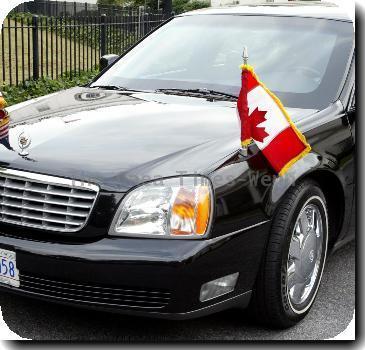Just as some drivers don’t carry insurance, critics doubt health coverage mandate would work
By Kristen Wyatt, APThursday, November 26, 2009
Car insurance scofflaws raise health mandate doubt
DENVER — Thousands of drivers on the nation’s roads don’t carry auto insurance, despite laws in all but two states requiring it. Critics of President Barack Obama’s health overhaul plan ask: What are the chances scofflaws will treat a requirement to carry health insurance any differently?
Nearly 40 years of car insurance mandates — which the insurance industry says have failed to make roads safer or lower auto insurance costs — raise questions about how well such mandates work.
“Not everyone complies,” said Scott Harrington, a professor of health care management and risk management at the University of Pennsylvania. “The auto insurance mandate is almost everywhere. But it’s not rigorously enforceable.”
David Sampson, president and CEO of the Property Casualty Insurers Association of America, said drivers’ personal financial situations, not the rules of their states, are a better indicator of whether they carry insurance.
States with higher poverty rates show a corresponding rise in uninsured drivers, he said. Simply put, people skirt car insurance when they can’t afford it.
They may do the same with health insurance, so the trick for Congress will be how to enforce a mandate without scuttling the program.
Set fines too low and healthy folks may decide to simply pay them and not buy insurance. But if fines are too high, voters may reject the plan or worry they could end up in jail for not getting coverage.
The House version would fine people up to 2.5 percent of adjustable income by 2017, while a Senate version would fine adults up to $750 a year.
Requiring everyone to buy health insurance can help spread the responsibility for medical costs. With proposed subsidies to help the poor buy into it, the so-called “individual mandate” gets Democrats closer to moving millions of uninsured into coverage plans.
Obama did not support an individual mandate in his campaign, but now says his thinking has evolved.
“We’re not going to have other people carrying your burdens for you any more than the fact that right now everybody in America, just about, has to get auto insurance,” Obama said in September on ABC’s “This Week” show.
Auto insurance mandates started cropping up in states in the 1970s, becoming virtually standard by the 1990s.
Forty-eight states require drivers to carry some sort of liability insurance, and when Wisconsin’s mandate starts next summer, New Hampshire will be the only state left where drivers can legally drive without auto insurance. Even in those states, though, drivers must provide proof that they can pay minimal levels of damage.
Despite that, 14 percent to 16 percent of drivers don’t have auto insurance, according to insurance industry estimates. That’s about the same percentage as Americans without health insurance — 15 percent by recent U.S. Census estimates.
Peter Urbanowicz — a former general counsel for Tenet Healthcare and the U.S. Department of Health and Human Services under former President George W. Bush — said the car insurance analogy is “an appealing argument.”
But he warned that a health overhaul dependent on a mandate could unravel if a court decides that just because state governments can require car insurance doesn’t mean the federal government can require health coverage.
“It’s apples and oranges” to compare health insurance to car insurance mandates, said David Rivkin, former counsel to President George H.W. Bush and a critic of health mandates.
People who don’t want to pay car insurance can simply choose not to drive, he said. But with health insurance, no one could avoid paying without breaking the law, Rivkin said.
“It’s imposed on you simply because you exist,” he said. “If the federal government can impose this kind of mandate, it can impose any kind of mandate.”
Even Congress’ own lawyers acknowledge compulsory health insurance is complicated.
In a July report on whether a mandate would be legal, the nonpartisan Congressional Research Service concluded that it “seems possible” — but noted it’s something the federal government has never attempted to do.
Mandate supporters said because health care makes up some 16 percent of the national economy, Congress can successfully argue that compelling coverage is within its power to regulate commerce.
Massachusetts became the only state to mandate health insurance in 2006. It has passed legal muster and led to 97 percent of residents having some form of coverage, said Alan Sager, director of the Health Reform Program at Boston University’s School of Public Health.
“It has been shown the mandate can be administered and implemented simply,” he said.
Tags: Access To Health Care, Automobiles, Barack Obama, Colorado, Denver, Government Regulations, Industry Regulation, North America, Personal Finance, Personal Insurance, United States

